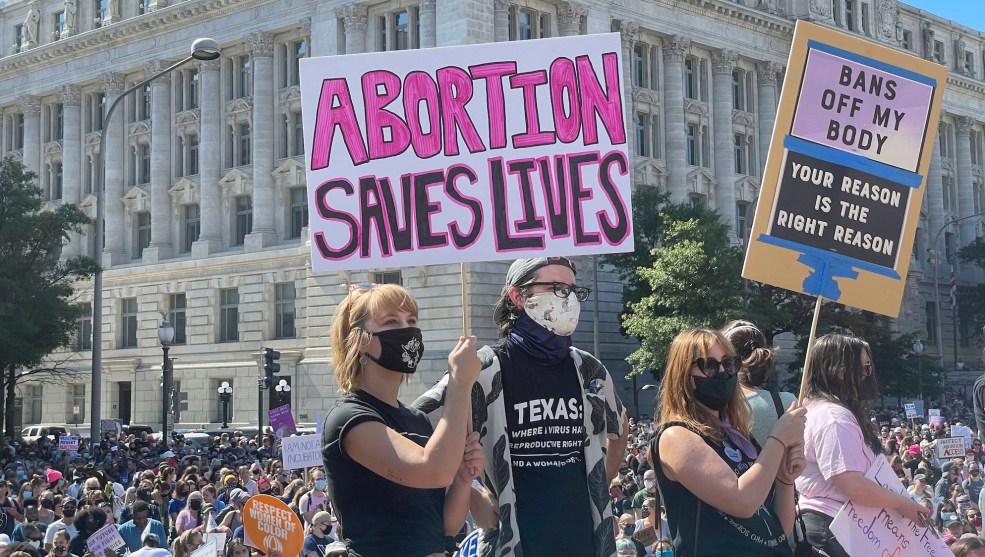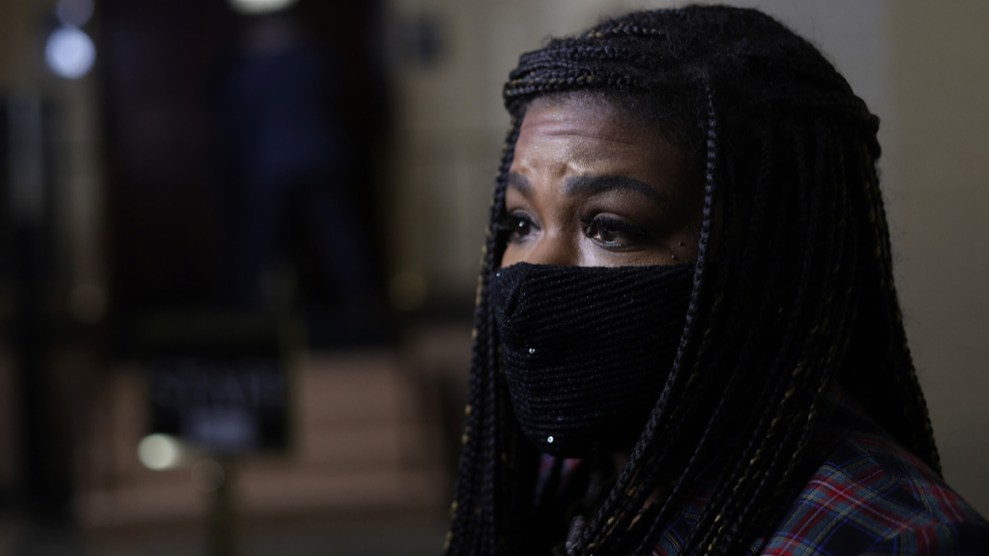
zz/STRF/Star Max/IPx/AP
Tens of thousands of pro-choice Americans marched at 650 events throughout the country on Saturday in support of abortion rights.
They came out specifically to denounce a draconian six-week abortion ban passed in Texas, which the Supreme Court refused to block on September 1—a possible prelude to the Court formally overturning Roe v. Wade.
Today, we're fighting for abortion access for all. Join us.
The #RallyForAbortionJustice is happening at 650 locations in all 50 states — in-person and virtually.
It's not too late to participate. Find a rally near you here: https://t.co/kcVGfpCsHH pic.twitter.com/uEagwW12Ao
— Women's March (@womensmarch) October 2, 2021
In addition to a central “Rally for Abortion Justice” in Washington DC, one of the largest rallies took place in Houston, where demonstrators took aim at the strictest anti-abortion law in the country. That law, which went into effect at the beginning of September, includes unusual provisions deputizing citizens—anywhere—to enforce the law by allowing individuals to file suit against anyone who assists with getting a person an abortion, with a $10,000 reward to plaintiffs who succeed in such cases.
“It makes no sense to allow vigilantes all over the country to be able to file suit against providers, against family members, against friends, against drivers,” Mayor Sylvester Turner said at a rally for abortion rights in downtown Houston. He linked the anti-abortion law to a broader assault on fundamental rights in Texas. “We’re dealing with voter suppression bills. We’re dealing with the attack on transgender youths. Now we’re dealing with the attack on women. There comes a time when Texas says no more.”
“The country has its eyes on Texas today and they are marching in solidarity with you all over the country,” activist and television host Padma Lakshmi, who is filming a new season of Top Chef in Houston, told the crowd after Turner spoke.
“Just steps away from stoning women in the street,” Padma Lakshmi shares a personal story of going with her mother to an abortion clinic during the Houston’s Women’s March in protest of recent legislation including SB 8. @FOX26Houston pic.twitter.com/xiDcAhRYs9
— Chelsea Edwards (@ChelseaFox26) October 2, 2021
Lakshmi told deeply personal stories about her own rape, when she was 16, and how, when she was 14, her family was in a terrible car crash that left her mother with a broken arm and sternum and five cracked ribs. Her mother later found out she was pregnant, and Lakshmi accompanied her to the local Planned Parenthood office to terminate the pregnancy, where they were surrounded by anti-abortion protestors.
“Deputizing vigilantes to put bounties on the heads of people who help families access abortion is state-sanctioned violence,” Lakshmi said. “It’s just a few steps away from stoning women in the streets.”
The Texas law is deeply unpopular. Fifty-four percent of Americans oppose it, according to a recent Monmouth poll, and by a two to one margin Americans support Roe v. Wade. Seventy percent of Americans oppose having private citizens file lawsuits to enforce the abortion ban and 81 percent of Americans oppose compensating them $10,000 for winning such suits.
Nevertheless, Republicans feel emboldened to restrict abortion after getting a green-light from the Supreme Court—and they are trying to insulate themselves from a public backlash in states like Texas by passing sweeping voter suppression laws and gerrymandered maps to entrench their power.













